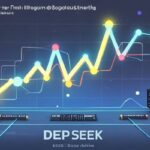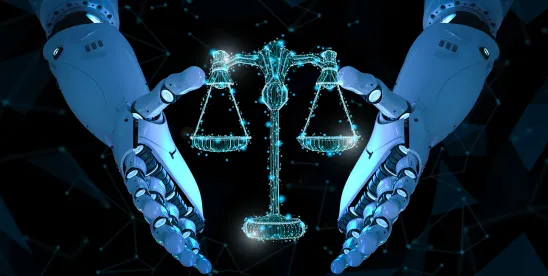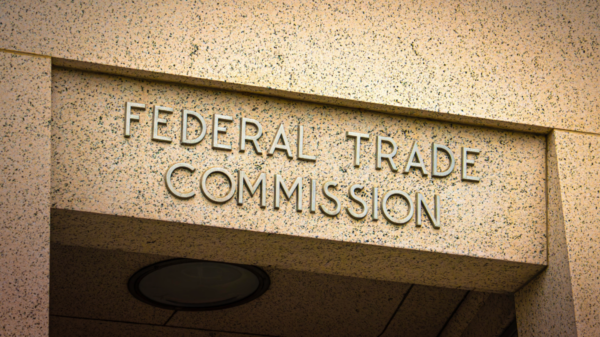What You Need to Know About AI-Related Legal Risks
The meteoric rise of artificial intelligence (AI) has created a complex landscape for businesses aiming to market AI-driven products. As the technology gains traction, it has also led to a concerning practice known as “AI washing,” where companies make misleading claims about their AI capabilities. This trend has drawn the attention of regulators, prompting a wave of enforcement actions and legal scrutiny.
Regulatory Scrutiny Intensifies
The Federal Trade Commission (FTC) has taken a leading role in combatting deceptive marketing practices associated with AI. In September 2024, the FTC launched Operation AI Comply, aimed at addressing companies that exploit AI hype to deceive consumers. The initiative highlighted several investigations into companies making unfounded claims about their AI technologies.
One notable case involved DoNotPay, which claimed to offer the “world’s first robot lawyer” for a subscription fee of $49.99 per month. The FTC found that DoNotPay’s AI was not adequately trained in legal frameworks, nor had it been validated by qualified attorneys. Consequently, the company reached a consent agreement requiring it to stop making these claims and to notify customers of the lack of evidence supporting its assertions.
Despite a generally deregulatory environment, enforcement actions against AI washing have continued unabated. In April 2025, the U.S. Securities and Exchange Commission (SEC) and the Department of Justice (DOJ) charged Albert Saniger, the former CEO of Nate, with fraudulent claims regarding AI’s role in the app’s operations. Saniger allegedly secured over $40 million in investments while the app relied heavily on manual processing rather than automated AI solutions.
Private Lawsuits on the Rise
In addition to regulatory actions, private lawsuits are emerging as a new front in the battle against AI washing. For example, in September 2024, investors filed a lawsuit against GitLab, alleging misrepresentations about the incorporation of AI in their products. The Stanford Law School’s clearinghouse for securities litigation reported a rise in such cases, with seven AI-related lawsuits in 2023 and 15 in 2024, already reaching 12 by mid-2025.
Consumers are also joining the legal fray. For instance, in March 2025, a class-action complaint was lodged against Apple, criticizing the company for alleged misrepresentations regarding the AI capabilities of its virtual assistant, Siri.
Best Practices for AI Marketing
As AI technology becomes more prevalent, companies must adopt best practices to mitigate legal risks associated with misleading claims. Here are several key lessons learned from recent enforcement actions:
The Fundamentals Still Apply
Legal standards for marketing remain unchanged. Companies must ensure their marketing practices adhere to existing laws that prevent misrepresentation.
Know Your AI
Understanding the capabilities and limitations of AI technology is crucial. Businesses should invest in thorough documentation of their AI systems to support any claims made in marketing.
Align Legal and Marketing Teams
It is vital to have legal teams review any AI claims made by marketing or technical teams. This ensures that statements made about the product’s capabilities are accurate and legally sound.
Distinguish Present and Future Capabilities
Companies should clearly delineate between existing capabilities and future aspirations. Claims should reflect current functionalities rather than speculative future advancements.
Monitor Claims Made
Regular audits of marketing claims are essential. Given the rapid evolution of AI technologies, what may be true today could quickly become misleading if not regularly updated.
As companies race to capitalize on the potential of AI, they must be aware that their statements will be scrutinized by regulators and consumers alike. Taking proactive measures now can mitigate the risks of litigation and enforcement action in the future.
See also Two Americans, Two Chinese Nationals Charged in $3.8M Nvidia Chip Smuggling Scheme
Two Americans, Two Chinese Nationals Charged in $3.8M Nvidia Chip Smuggling Scheme Perplexity Launches Comet Browser for Android, iOS Version Coming Soon
Perplexity Launches Comet Browser for Android, iOS Version Coming Soon AI Transforms Global Logistics, Reducing Labor Needs by 50% Through Automation
AI Transforms Global Logistics, Reducing Labor Needs by 50% Through Automation DeepSeek Launches LPLB: A Linear Programming Solution for MoE Load Imbalance
DeepSeek Launches LPLB: A Linear Programming Solution for MoE Load Imbalance AI in Academia: Balancing Benefits and Risks of Using Tools Like ChatGPT
AI in Academia: Balancing Benefits and Risks of Using Tools Like ChatGPT






































































